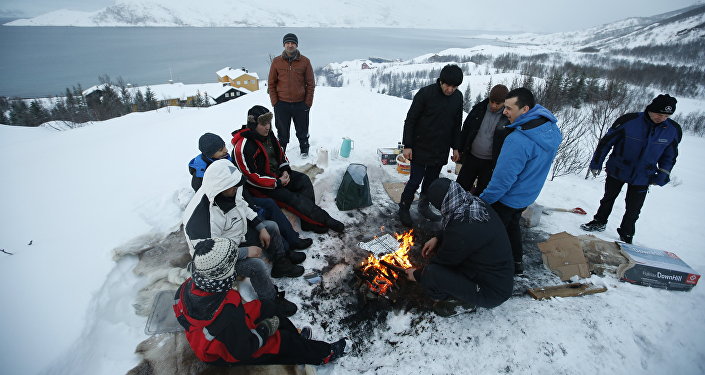Environmental organizations, political heavyweights and former ministers are among the plaintiffs in an unparalleled lawsuit against the Norwegian state in a bid to stop future oil exploration.
The lawsuit, which is expected to have far-reaching consequences for Norway’s oil and gas industry, was filed by environmentalists Greenpeace and Nature and Youth, with the Grandparents Climate Campaign (featuring former Conservative Prime Minister Kåre Willoch) as an intermediary.
The plaintiffs contend that the government’s June 2016 decision to allow oil drilling in ten vulnerable areas of the Barents Sea constitutes a breach of the Norwegian constitution and the Paris Agreement to stop climate change, which Norway has signed.
“We don’t think the state is doing enough for the climate. By allocating new oil fields in vulnerable areas in the Barents Sea, climate problems are only going to be more difficult to solve. We therefore consider it a violation of the constitution’s requirement for the state to ensure a sustainable environment for future generations,” Greenpeace Norway leader Truls Gulowsen said.
The Norwegian government rejected the allegations and ventured that the Oslo District Court was the wrong kind of forum to solve issues of this kind.
“It is an attempt to Americanize the relationship between justice and politics, which is new to Norway. This is the first trial of this type we have ever had,” Attorney General Fredrik Sejersted told Swedish Radio.
Meanwhile, Ole Kristian Fauchald, a professor of law at the University of Oslo, argued it was high time for an environmental case to appear in a Norwegian court, as these issues are part of an international trend.
“The lawsuit will have a broad impact on environmental cases abroad. What happens here in Norway in this case will largely determine how similar questions will be solved elsewhere, Ole Kristian Fauchald told the national broadcaster NRK, arguing it will set an important precedent.
Truls Gulowsen said they would have never gone to court if they did not believe in victory.
“If we win, it will have consequences for future allocations of oil licenses. If we win and the ten oil licenses in the Barents Sea are declared invalid, then the next round will be reversed as well if it is done in the same way,” Truls Gulowsen said. “If we lose, we’ll get on with something else,” he added.
”If we win, it will be historic. Then we will have proven that environmental interests must weigh much heavier when distributing oil licenses. This will imply a change in Norway’s current oil routine,” Nature and Youth head Ingrid Skjoldvær concurred.
The trial in Oslo will take place until November 22, yet the verdict is expected to be appealed in a higher court, regardless of the outcome.
Today, Norway is the 8th largest oil producer and the 3rd largest gas producer in the world. Since the mid-1960s, the oil industry has become the pillar of the Norwegian economy, playing a vital role in the country’s economy and the financing of its welfare state. In 2016, 185,300 people out of Norway’s total population of 5.2 million were directly or indirectly employed in the petroleum sector.




